- Home
- Nora Roberts
Endless Summer
Endless Summer Read online
#1 New York Times bestselling author Nora Roberts presents two reader-favorite tales about summer love…
ONE SUMMER
Being forced to spend the summer on a cross-country photo shoot is less than ideal for Bryan Mitchell. She specializes in seeing the best in people, but the cynical photojournalist Shade Colby is making her life a living hell. Bryan and Shade disagree about everything—everything, that is, except the fierce attraction they have for each other. But can they set their differences aside to give their love a shot
LESSONS LEARNED
Publicist Juliet Trent never mixes business with pleasure, but her newest client, charming ladies’ man and chef Carlo Franconi, is determined to whet her appetite for love. Juliet has a plan—by the time the publicity tour is over, Carlo will be the world’s sexiest chef—she just needs to remain immune to his charms. Candlelight, pasta and romance… Carlo is determined to send her heart simmering.
Previously Published.
Endless Summer
One Summer
Lessons Learned
Nora Roberts
Table of Contents
One Summer
By Nora Roberts
Lessons Learned
By Nora Roberts
Bryan Mitchell and Shade Wilder. She was America’s greatest celebrity photographer. He was one of the world’s most respected photojournalists.
They were working together, traveling across the country, recording two views of one American summer. They we complete opposites. And yet they each felt a passion that was destined to draw them together.
It took the eye of the camera to show them how close they could become. And it took their mounting desire to lower their defenses and allow them to revel in the fulfillment of love….
Originally published in 1986.
One Summer
Nora Roberts
CONTENTS
Chapter One
Chapter Two
Chapter Three
Chapter Four
Chapter Five
Chapter Six
Chapter Seven
Chapter Eight
Chapter Nine
Chapter Ten
Chapter Eleven
Chapter Twelve
Epilogue
CHAPTER ONE
The room was dark. Pitch-dark. But the man named Shade was used to the dark. Sometimes he preferred it. It wasn’t always necessary to see with your eyes. His fingers were both clever and competent, his inner eye as keen as a knife blade.
There were times, even when he wasn’t working, when he’d sit in a dark room and simply let images form in his mind. Shapes, textures, colors. Sometimes they came clearer when you shut your eyes and just let your thoughts flow. He courted darkness, shadows, just as relentlessly as he courted the light. It was all part of life, and life—its images—was his profession.
He didn’t always see life as others did. At times it was harsher, colder, than the naked eye could see—or wanted to. Other times it was softer, more lovely, than the busy world imagined. Shade observed it, grouped the elements, manipulated time and shape, then recorded it his way. Always his way.
Now, with the room dark and the sound of recorded jazz coming quiet and disembodied from the corner, he worked with his hands and his mind. Care and timing. He used them both in every aspect of his work. Slowly, smoothly, he opened the capsule and transferred the undeveloped film onto the reel. When the light-tight lid was on the developing tank, he set the timer with his free hand, then pulled the chain that added the amber light to the room.
Shade enjoyed developing the negative and making the print as much as, sometimes more than, he enjoyed taking the photograph. Darkroom work required precision and accuracy. He needed both in his life. Making the print allowed for creativity and experimentation. He needed those as well. What he saw, what he felt about what he saw, could be translated exactly or left as an enigma. Above all, he needed the satisfaction of creating something himself, alone. He always worked alone.
Now, as he went through each precise step of developing—temperature, chemicals, agitation, timing—the amber light cast his face into shadows. If Shade had been looking to create the image of photographer at work, he’d never have found a clearer statement than himself.
His eyes were dark, intense now as he added the stop bath to the tank. His hair was dark as well, too long for the convention he cared nothing about. It brushed over his ears, the back of his T-shirt, and fell over his forehead nearly to his eyebrows. He never gave much thought to style. His was cool, almost cold, and rough around the edges.
His face was deeply tanned, lean and hard, with strong bones dominating. His mouth was taut as he concentrated. There were lines spreading out finely from his eyes, etched there by what he’d seen and what he’d felt about it. Some would say there’d already been too much of both.
The nose was out of alignment, a result of a professional hazard. Not everyone liked to have his picture taken. The Cambodian soldier had broken Shade’s nose, but Shade had gotten a telling picture of the city’s devastation, of the waste. He still considered it an even exchange.
In the amber light, his movements were brisk. He had a rangy, athletic body, the result of years in the field—often a foreign, unfriendly field—miles of legwork and missed meals.
Even now, years after his last staff assignment for International View, Shade remained lean and agile. His work wasn’t as grueling as it had been in his early years in Lebanon, Laos, Central America, but his pattern hadn’t changed. He worked long hours, sometimes waiting endlessly for just the right shot, sometimes using a roll of film within minutes. If his style and manner were aggressive, it could be said that they’d kept him alive and whole during the wars he’d recorded.
The awards he’d won, the fee he now commanded, remained secondary to the picture. If no one had paid him or recognized his work, Shade would still have been in the darkroom, developing his film. He was respected, successful and rich. Yet he had no assistant and continued to work out of the same darkroom he’d set up ten years before.
When Shade hung his negatives up to dry, he already had an idea which ones he’d print. Still, he barely glanced at them, leaving them hanging as he unlocked the darkroom door and stepped out. Tomorrow his outlook would be fresher. Waiting was an advantage he hadn’t always had. Right now he wanted a beer. He had some thinking to do.
He headed straight for the kitchen and grabbed a cold bottle. Popping off the lid, he tossed it into the can his once-a-week housekeeper lined with plastic. The room was clean, not particularly cheerful with the hard whites and blacks, but then it wasn’t dull.
After he tilted the bottle back, he chugged the beer down, draining half. He lit a cigarette, then took the beer to the kitchen table where he leaned back in a chair and propped his feet on the scrubbed wood surface.
The view out the kitchen window was of a not-so-glamorous L.A. It was a little seamy, rough, sturdy and tough. The early-evening light couldn’t make it pretty. He could’ve moved to a glossier part of town, or out to the hills, where the lights of the city at night looked like a fairy tale. Shade preferred the small apartment that looked out over the unpampered streets of a city known for glitz. He didn’t have much patience with glitz.
Bryan Mitchell. She specialized in it.
He couldn’t deny that her portraits of the rich, famous and beautiful were well done—even excellent ones of their kind. There was compassion in her photographs, humor and a smooth sensuality. He wouldn’t even deny that there was a place for her kind of work in the field. It just wasn’t his angle. She reflected culture, he went straight for life.
Her work for Celebrity magazine had been professional, slick and often searing in its way. The larger-
than-life people she’d photographed had often been cut down to size in a way that made them human and approachable. Since she’d decided to freelance, the stars, near-stars and starmakers she’d photographed for the glossy came to her. Over the years, she’d developed a reputation and style that had made her one of them, part of the inner, select circle.
It could happen to a photographer, he knew. They could come to resemble their own themes, their own studies. Sometimes what they tried to project became a part of them. Too much a part. No, he didn’t begrudge Bryan Mitchell her state of the art. Shade simply had doubts about working with her.
He didn’t care for partnerships.
Yet those were the terms. When he’d been approached by Life-style to do a pictorial study of America, he’d been intrigued. Photo essays could make a strong, lasting statement that could rock and jar or soothe and amuse. As a photographer, he had sought to do that. Life-style wanted him, wanted the strong, sometimes concise, sometimes ambiguous emotions his pictures could portray. But they also wanted a counterbalance. A woman’s view.
He wasn’t so stubborn that he didn’t see the point and the possibilities. Yet it irked him to think that the assignment hinged on his willingness to share the summer, his van and the credit with a celebrity photographer. And with a woman at that. Three months on the road with a female who spent her time perfecting snapshots of rock stars and personalities. For a man who’d cut his professional teeth in war-torn Lebanon, it didn’t sound like a picnic.
But he wanted to do it. He wanted the chance to capture an American summer from L.A. to New York, showing the joy, the pathos, the sweat, the cheers and disappointments. He wanted to show the heart, even while he stripped it to the bone.
All he had to do was say yes, and share the summer with Bryan Mitchell.
* * *
“Don’t think about the camera, Maria. Dance.” Bryan lined up the forty-year-old ballet superstar in her viewfinder. She liked what she saw. Age? Touches of it, but years meant nothing. Grit, style, elegance. Endurance—most of all, endurance. Bryan knew how to catch them all and meld them.
Maria Natravidova had been photographed countless times over her phenomenal twenty-five-year career. But never with sweat running down her arms and dampening her leotard. Never with the strain showing. Bryan wasn’t looking for the illusions dancers live with, but the exhaustion, the aches that were the price of triumph.
She caught Maria in a leap, legs stretched parallel to the floor, arms flung wide in perfect alignment. Drops of moisture danced from her face and shoulders; muscles bunched and held. Bryan pressed the shutter, then moved the camera slightly to blur the motion.
That would be the one. She knew it even as she finished off the roll of film.
“You make me work,” the dancer complained as she slid into a chair, blotting her streaming face with a towel.
Bryan took two more shots, then lowered her camera. “I could’ve dressed you in costume, backlit you and had you hold an arabesque. That would show that you’re beautiful, graceful. Instead I’m going to show that you’re a strong woman.”
“And you’re a clever one.” Maria sighed as she let the towel drop. “Why else do I come to you for the pictures for my book?”
“Because I’m the best.” Bryan crossed the studio and disappeared into a back room. Maria systematically worked a cramp out of her calf. “Because I understand you, admire you. And—” she brought out a tray, two glasses and a pitcher clinking with ice “—because I squeeze oranges for you.”
“Darling.” With a laugh, Maria reached for the first glass. For a moment, she held it to her high forehead, then drank deeply. Her dark hair was pulled back severely in a style only good bones and flawless skin could tolerate. Stretching out her long, thin body in the chair, she studied Bryan over the rim of her glass.
Maria had known Bryan for seven years, since the photographer had started at Celebrity with the assignment to take pictures of the dancer backstage. The dancer had been a star, but Bryan hadn’t shown awe. Maria could still remember the young woman with the thick honey-colored braid and bib overalls. The elegant prima ballerina had found herself confronted with candid eyes the color of pewter, an elegant face with slanting cheekbones and a full mouth. The tall, athletic body had nearly been lost inside the baggy clothes. She’d worn ragged sneakers and long, dangling earrings.
Maria glanced down at the dingy Nikes Bryan wore. Some things didn’t change. At first glance, you’d categorize the tall, tanned blonde in sneakers and shorts as typically California. Looks could be deceiving. There was nothing typical about Bryan Mitchell.
Bryan accepted the stare as she drank. “What do you see, Maria?” It interested her to know. Conceptions and preconceptions were part of her trade.
“A strong, smart woman with talent and ambition.” Maria smiled as she leaned back in the chair. “Myself, nearly.”
Bryan smiled. “A tremendous compliment.”
Maria acknowledged this with a sweeping gesture. “There aren’t many women I like. Myself I like, and so, you. I hear rumors, my love, about you and that pretty young actor.”
“Matt Perkins.” Bryan didn’t believe in evading or pretending. She lived, by choice, in a town fueled by rumors, fed by gossip. “I took his picture, had a few dinners.”
“Nothing serious?”
“As you said, he’s pretty.” Bryan smiled and chewed on a piece of ice. “But there’s barely room enough for his ego and mine in his Mercedes.”
“Men.” Maria leaned forward to pour herself a second glass.
“Now you’re going to be profound.”
“Who better?” Maria countered. “Men.” She said the word again, savoring it. “I find them tedious, childish, foolish and indispensable. Being loved…sexually, you understand?”
Bryan managed to keep her lips from curving. “I understand.”
“Being loved is exhilarating, exhausting. Like Christmas. Sometimes I feel like the child who doesn’t understand why Christmas ends. But it does. And you wait for the next time.”
It always fascinated Bryan how people felt about love, how they dealt with it, groped for it and avoided it. “Is that why you never married, Maria? You’re waiting for the next time?”
“I married dance. To marry a man, I would have to divorce dance. There’s no room for two for a woman like me. And you?”
Bryan stared into her drink, no longer amused. She understood the words too well. “No room for two,” she murmured. “But I don’t wait for the next time.”
“You’re young. If you could have Christmas every day, would you turn away from it?”
Bryan moved her shoulders. “I’m too lazy for Christmas every day.”
“Still, it’s a pretty fantasy.” Maria rose and stretched. “You’ve made me work long enough. I have to shower and change. Dinner with my choreographer.”
Alone, Bryan absently ran a finger over the back of her camera. She didn’t often think about love and marriage. She’d been there already. Once a fantasy was exposed to reality, it faded, like a photo improperly fixed. Permanent relationships rarely worked, and still more rarely worked well.
She thought of Lee Radcliffe, married to Hunter Brown for nearly a year, helping to raise his daughter and pregnant with her first child. Lee was happy, but then she’d found an extraordinary man, one who wanted her to be what she was, even encouraged her to explore herself. Bryan’s own experience had taught her that what’s said and what’s felt can be two opposing things.
Your career’s as important to me as it is to you. How many times had Rob said that before they’d been married? Get your degree. Go for it.
So they’d gotten married, young, eager, idealistic. Within six months he’d been unhappy with the time she’d put into her classes and her job at a local studio. He’d wanted his dinner hot and his socks washed. Not so much to ask, Bryan mused. To be fair, she had to say that Rob had asked for little of her. Just too much at the time.
They�
�d cared for each other, and both had tried to make adjustments. Both had discovered they’d wanted different things for themselves—different things from each other, things neither could be, neither could give.
It would’ve been called an amicable divorce—no fury, no bitterness. No passion. A signature on a legal document, and the dream had been over. It had hurt more than anything Bryan had ever known. The taint of failure had stayed with her a long, long time.
She knew Rob had remarried. He was living in the suburbs with his wife and their two children. He’d gotten what he’d wanted.
And so, Bryan told herself as she looked around her studio, had she. She didn’t just want to be a photographer. She was a photographer. The hours she spent in the field, in her studio, in the darkroom, were as essential to her as sleep. And what she’d done in the six years since the end of her marriage, she’d done on her own. She didn’t have to share it. She didn’t have to share her time. Perhaps she was a great deal like Maria. She was a woman who ran her own life, made her own decisions, personally and professionally. Some people weren’t made for partnerships.
Shade Colby. Bryan propped her feet on Maria’s chair. She might just have to make a concession there. She admired his work. So much so, in fact, that she’d plunked down a heady amount for his print of an L.A. street scene at a time when money had been a large concern. She’d studied it, trying to analyze and guess at the techniques he’d used for setting the shot and making the print. It was a moody piece, so much gray, so little light. And yet, Bryan had sensed a certain grit in it, not hopelessness, but ruthlessness. Still, admiring his work and working with him were two different things.
They were based in the same town, but they moved in different circles. For the most part, Shade Colby didn’t move in any circles. He kept to himself. She’d seen him at a handful of photography functions, but they’d never met.

 A Little Magic
A Little Magic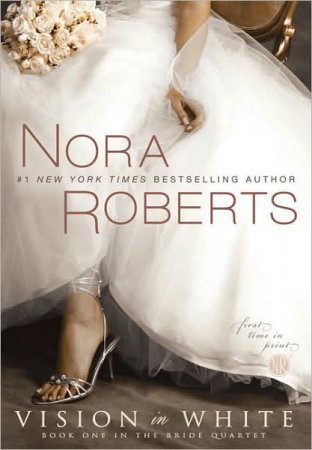 Vision in White
Vision in White True Betrayals
True Betrayals The Next Always
The Next Always A Man for Amanda
A Man for Amanda Born in Fire
Born in Fire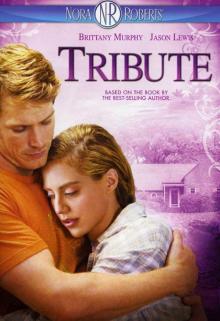 Tribute
Tribute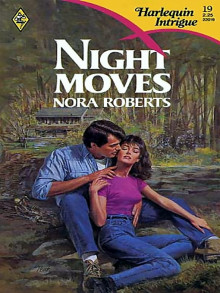 Night Moves
Night Moves Dance Upon the Air
Dance Upon the Air The Name of the Game
The Name of the Game Jewels of the Sun
Jewels of the Sun River's End
River's End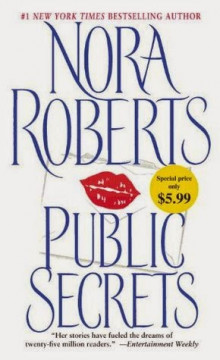 Public Secrets
Public Secrets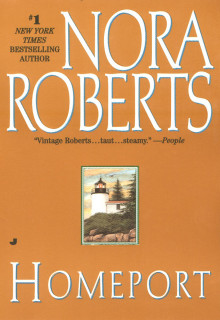 Homeport
Homeport Private Scandals
Private Scandals The Witness
The Witness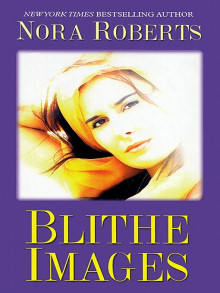 Blithe Images
Blithe Images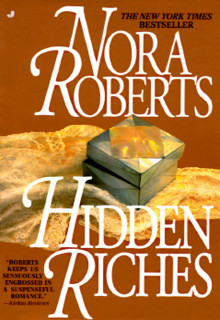 Hidden Riches
Hidden Riches Key of Light
Key of Light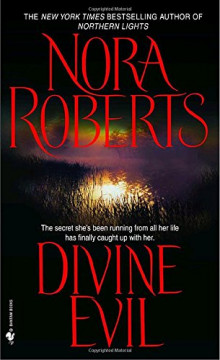 Divine Evil
Divine Evil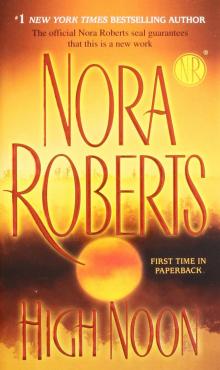 High Noon
High Noon Blue Dahlia
Blue Dahlia Sea Swept
Sea Swept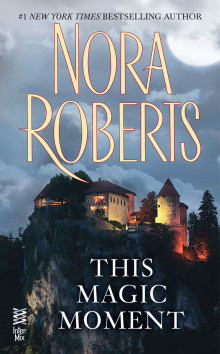 This Magic Moment
This Magic Moment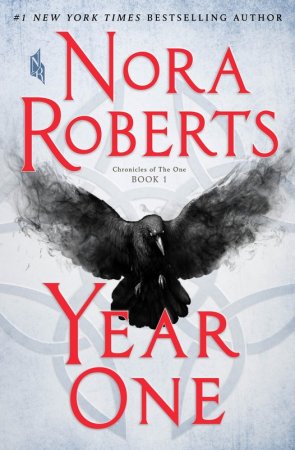 Year One
Year One A Little Fate
A Little Fate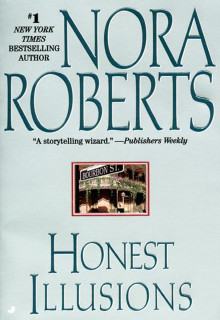 Honest Illusions
Honest Illusions The Reef
The Reef Shelter in Place
Shelter in Place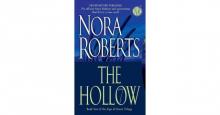 The Hollow
The Hollow Holding the Dream
Holding the Dream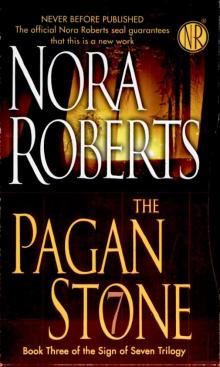 The Pagan Stone
The Pagan Stone Savour the Moment
Savour the Moment The Perfect Hope
The Perfect Hope Island of Glass
Island of Glass Happy Ever After
Happy Ever After Bed of Roses
Bed of Roses Stars of Fortune
Stars of Fortune Dark Witch
Dark Witch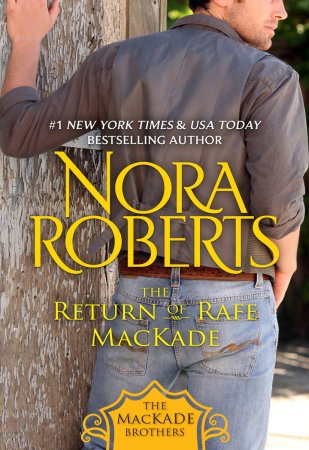 The Return of Rafe MacKade
The Return of Rafe MacKade Chesapeake Blue
Chesapeake Blue The Perfect Neighbor
The Perfect Neighbor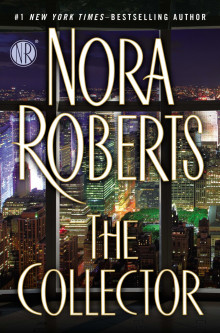 The Collector
The Collector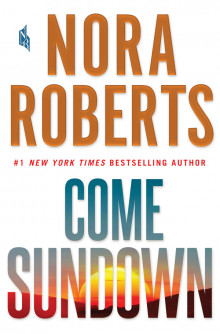 Come Sundown
Come Sundown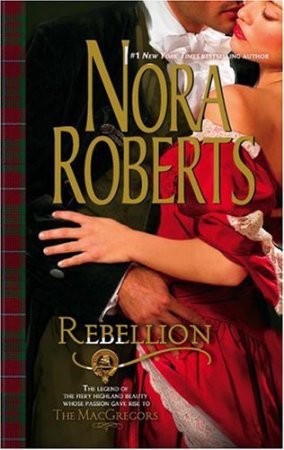 Rebellion
Rebellion Affaire Royale
Affaire Royale Daring to Dream
Daring to Dream Bay of Sighs
Bay of Sighs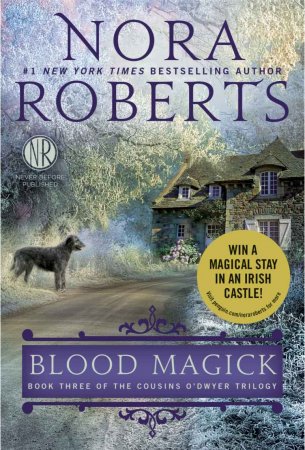 Blood Magick
Blood Magick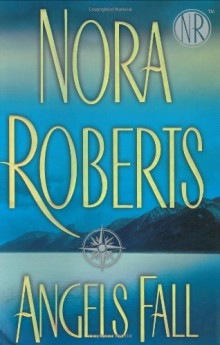 Angels Fall
Angels Fall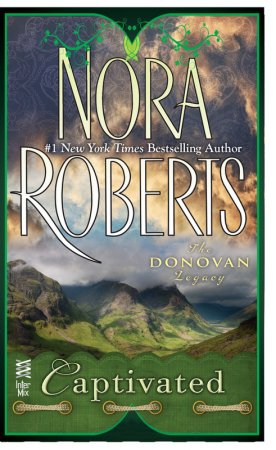 Captivated
Captivated The Last Boyfriend
The Last Boyfriend Irish Thoroughbred
Irish Thoroughbred Inner Harbor
Inner Harbor The Right Path
The Right Path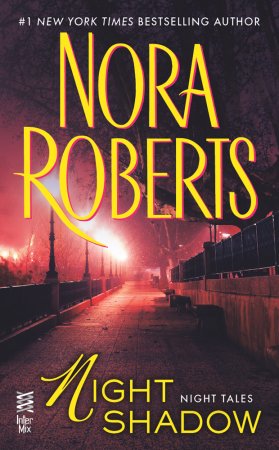 Night Shadow
Night Shadow The Heart of Devin MacKade
The Heart of Devin MacKade Shadow Spell
Shadow Spell The Playboy Prince
The Playboy Prince The Fall of Shane MacKade
The Fall of Shane MacKade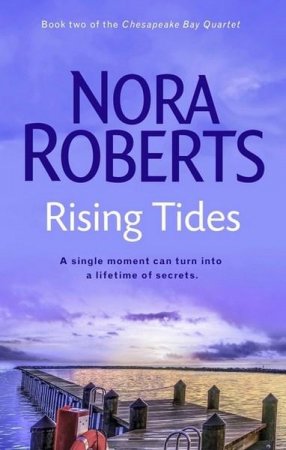 Rising Tides
Rising Tides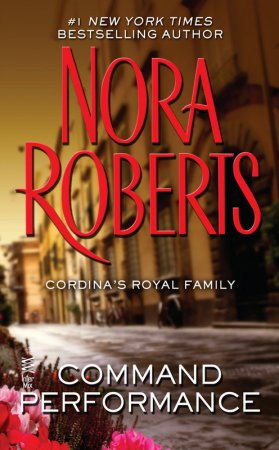 Command Performance
Command Performance Hidden Star
Hidden Star Cordina's Crown Jewel
Cordina's Crown Jewel The MacGregor Brides
The MacGregor Brides The Pride of Jared MacKade
The Pride of Jared MacKade Born in Ice
Born in Ice Whiskey Beach
Whiskey Beach The Last Honest Woman
The Last Honest Woman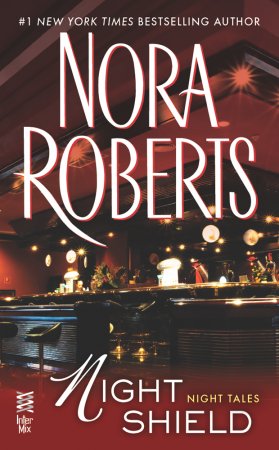 Night Shield
Night Shield Born in Shame
Born in Shame Secret Star
Secret Star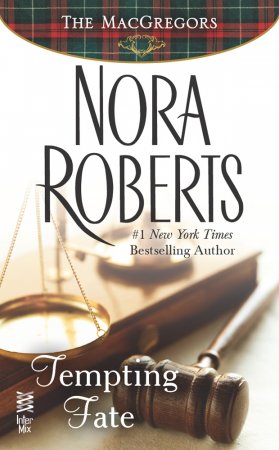 Tempting Fate
Tempting Fate Nightshade
Nightshade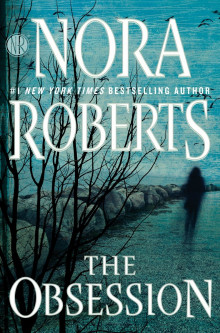 The Obsession
The Obsession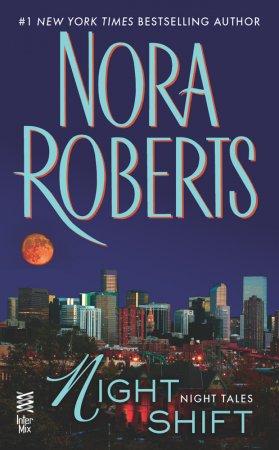 Night Shift
Night Shift Playing The Odds
Playing The Odds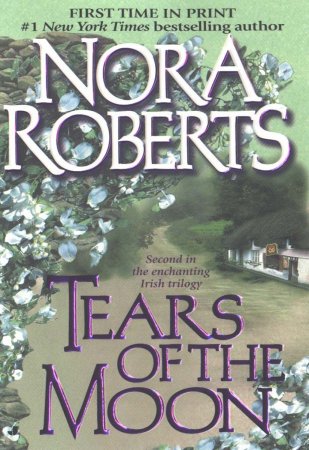 Tears of the Moon
Tears of the Moon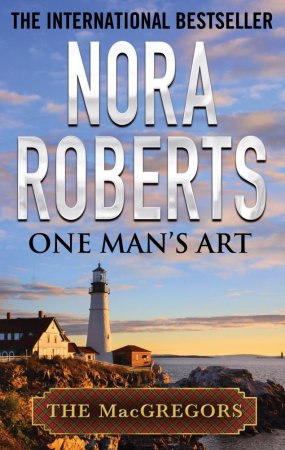 One Man's Art
One Man's Art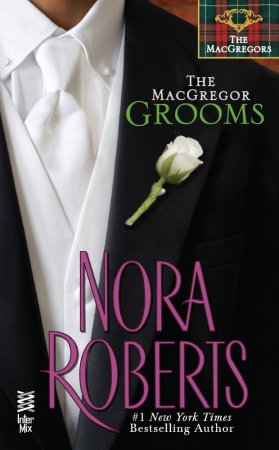 The MacGregor Groom
The MacGregor Groom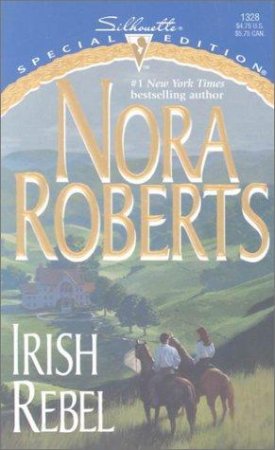 Irish Rebel
Irish Rebel Morrigan's Cross
Morrigan's Cross In From The Cold
In From The Cold Night Smoke
Night Smoke Finding the Dream
Finding the Dream Red Lily
Red Lily The Liar
The Liar Montana Sky
Montana Sky Heart of the Sea
Heart of the Sea All The Possibilities
All The Possibilities Opposites Attract
Opposites Attract Captive Star
Captive Star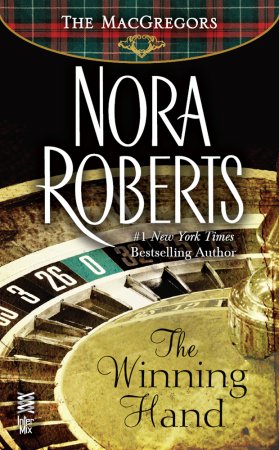 The Winning Hand
The Winning Hand Key of Valor
Key of Valor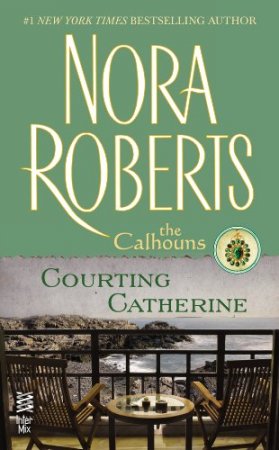 Courting Catherine
Courting Catherine Heaven and Earth
Heaven and Earth Face the Fire
Face the Fire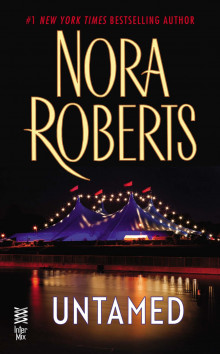 Untamed
Untamed Skin Deep
Skin Deep Enchanted
Enchanted Song of the West
Song of the West Suzanna's Surrender
Suzanna's Surrender Entranced
Entranced Dance of the Gods
Dance of the Gods Key of Knowledge
Key of Knowledge Charmed
Charmed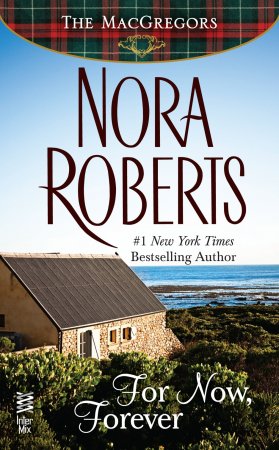 For Now, Forever
For Now, Forever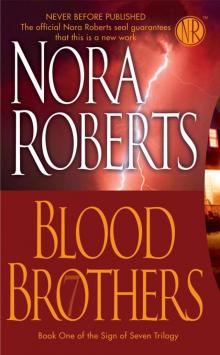 Blood Brothers
Blood Brothers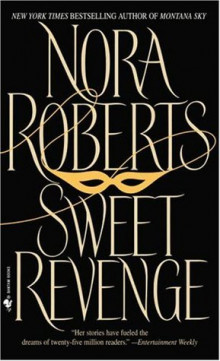 Sweet Revenge
Sweet Revenge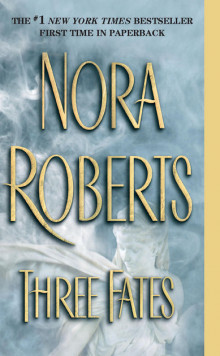 Three Fates
Three Fates Mind Over Matter
Mind Over Matter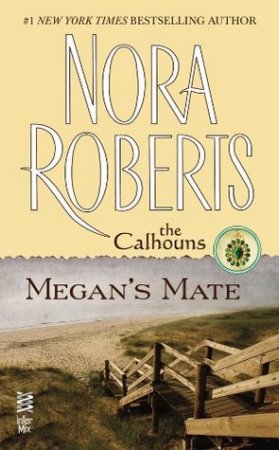 Megan's Mate
Megan's Mate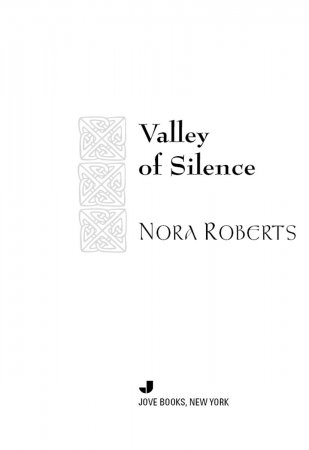 Valley of Silence
Valley of Silence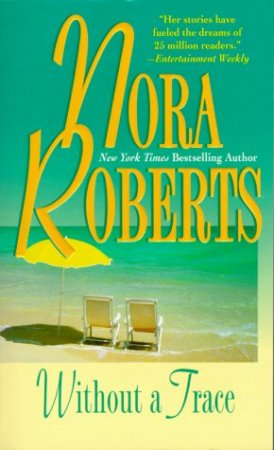 Without A Trace
Without A Trace The Law is a Lady
The Law is a Lady Temptation
Temptation Dance to the Piper
Dance to the Piper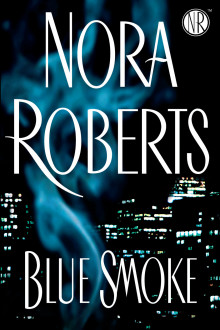 Blue Smoke
Blue Smoke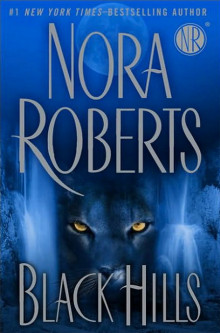 Black Hills
Black Hills The Heart's Victory
The Heart's Victory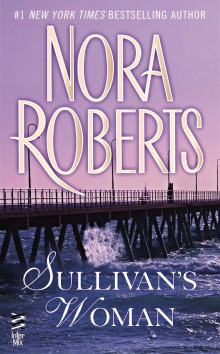 Sullivan's Woman
Sullivan's Woman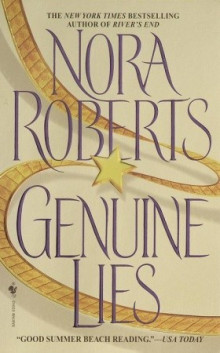 Genuine Lies
Genuine Lies For the Love of Lilah
For the Love of Lilah Gabriel's Angel
Gabriel's Angel Irish Rose
Irish Rose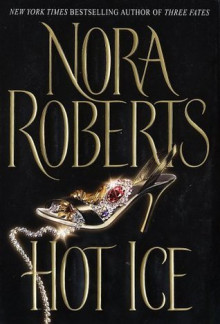 Hot Ice
Hot Ice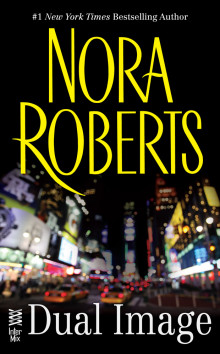 Dual Image
Dual Image Lawless
Lawless Catch My Heart
Catch My Heart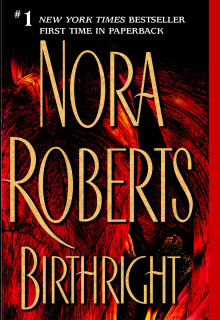 Birthright
Birthright First Impressions
First Impressions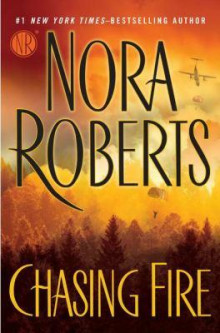 Chasing Fire
Chasing Fire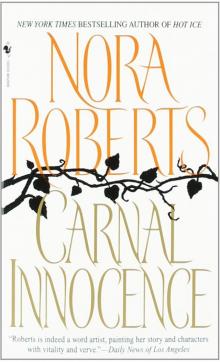 Carnal Innocence
Carnal Innocence Best Laid Plans
Best Laid Plans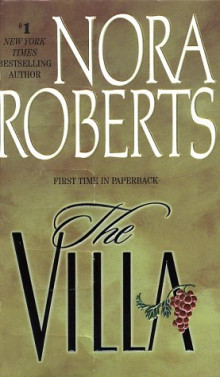 The Villa
The Villa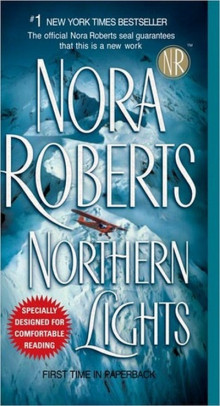 Northern Lights
Northern Lights Local Hero
Local Hero Island of Flowers
Island of Flowers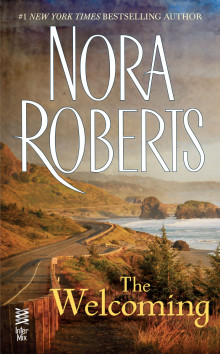 The Welcoming
The Welcoming All I Want for Christmas
All I Want for Christmas Black Rose
Black Rose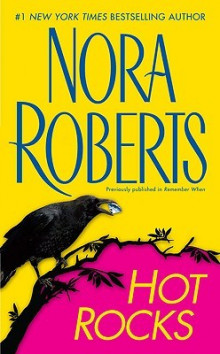 Hot Rocks
Hot Rocks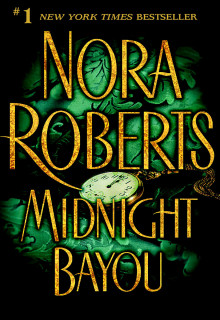 Midnight Bayou
Midnight Bayou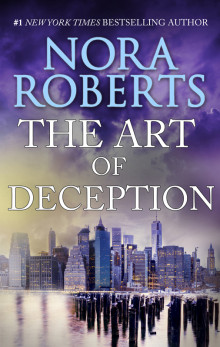 The Art of Deception
The Art of Deception From This Day
From This Day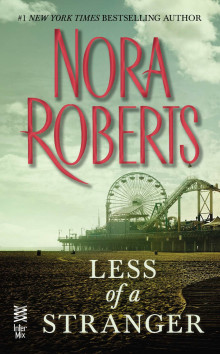 Less of a Stranger
Less of a Stranger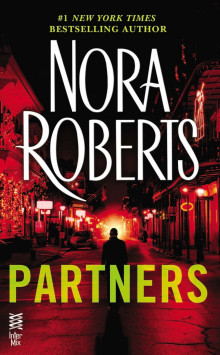 Partners
Partners Storm Warning
Storm Warning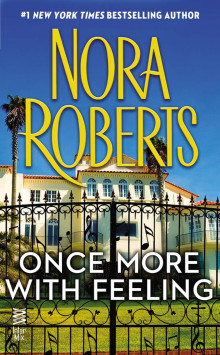 Once More With Feeling
Once More With Feeling Her Mother's Keeper
Her Mother's Keeper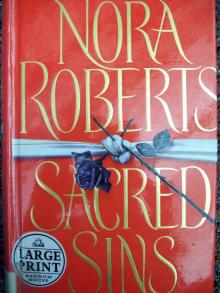 Sacred Sins
Sacred Sins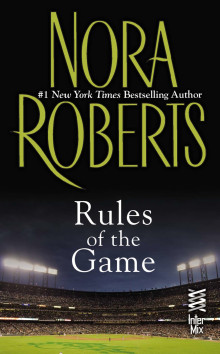 Rules of the Game
Rules of the Game Sanctuary
Sanctuary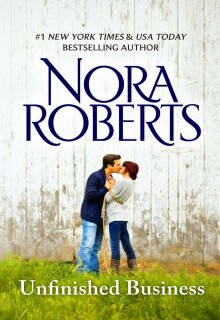 Unfinished Business
Unfinished Business Cordina's Royal Family Collection
Cordina's Royal Family Collection Dangerous Embrace
Dangerous Embrace One Summer
One Summer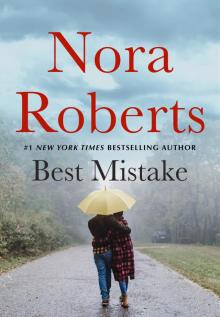 The Best Mistake
The Best Mistake Boundary Lines
Boundary Lines Under Currents
Under Currents The Stanislaski Series Collection, Volume 1
The Stanislaski Series Collection, Volume 1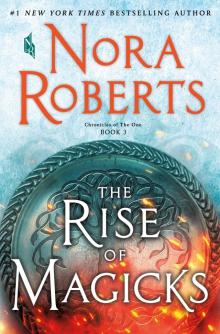 The Rise of Magicks
The Rise of Magicks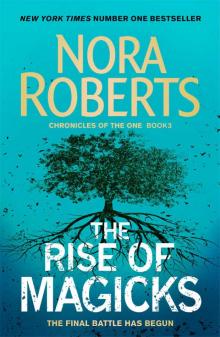 The Rise of Magicks (Chronicles of The One)
The Rise of Magicks (Chronicles of The One) The Awakening: The Dragon Heart Legacy Book 1
The Awakening: The Dragon Heart Legacy Book 1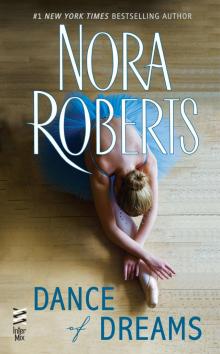 Dance of Dreams
Dance of Dreams Skin Deep: The O'Hurleys
Skin Deep: The O'Hurleys The Quinn Legacy: Inner Harbor ; Chesapeake Blue
The Quinn Legacy: Inner Harbor ; Chesapeake Blue![[Chronicles of the One 03.0] The Rise of Magicks Read online](http://i1.bookreadfree.com/11/chronicles_of_the_one_03_0_the_rise_of_magicks_preview.jpg) [Chronicles of the One 03.0] The Rise of Magicks
[Chronicles of the One 03.0] The Rise of Magicks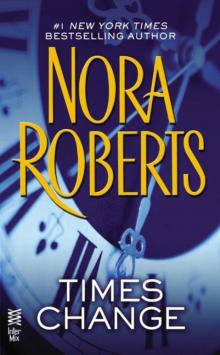 Times Change
Times Change Dance to the Piper: The O'Hurleys
Dance to the Piper: The O'Hurleys Christmas In the Snow: Taming Natasha / Considering Kate
Christmas In the Snow: Taming Natasha / Considering Kate Waiting for Nick
Waiting for Nick Summer Desserts
Summer Desserts Dream 2 - Holding the Dream
Dream 2 - Holding the Dream The Novels of Nora Roberts, Volume 2
The Novels of Nora Roberts, Volume 2 In the Garden Trilogy
In the Garden Trilogy Eight Classic Nora Roberts Romantic Suspense Novels
Eight Classic Nora Roberts Romantic Suspense Novels Best Laid Plans jh-2
Best Laid Plans jh-2 From the Heart
From the Heart Holiday Wishes
Holiday Wishes Dream 1 - Daring to Dream
Dream 1 - Daring to Dream Second Nature
Second Nature Summer Pleasures
Summer Pleasures Once Upon a Castle
Once Upon a Castle Stars of Mithra Box Set: Captive StarHidden StarSecret Star
Stars of Mithra Box Set: Captive StarHidden StarSecret Star Impulse
Impulse The Irish Trilogy by Nora Roberts
The Irish Trilogy by Nora Roberts The Pride Of Jared Mackade tmb-2
The Pride Of Jared Mackade tmb-2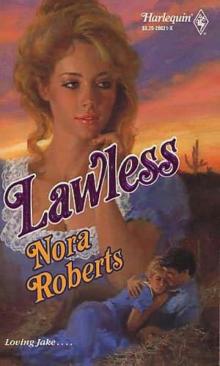 Lawless jh-3
Lawless jh-3 Taming Natasha
Taming Natasha Endless Summer
Endless Summer Bride Quartet Collection
Bride Quartet Collection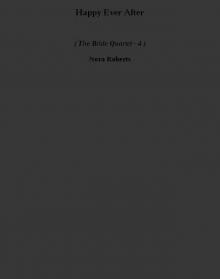 Happy Ever After tbq-4
Happy Ever After tbq-4 Heart Of The Sea goa-3
Heart Of The Sea goa-3 Search for Love
Search for Love Once upon a Dream
Once upon a Dream Once Upon a Star
Once Upon a Star Dream Trilogy
Dream Trilogy Risky Business
Risky Business The Novels of Nora Roberts, Volume 3
The Novels of Nora Roberts, Volume 3 Dream 3 - Finding the Dream
Dream 3 - Finding the Dream Promises in Death id-34
Promises in Death id-34 The Novels of Nora Roberts, Volume 4
The Novels of Nora Roberts, Volume 4 The Perfect Hope ib-3
The Perfect Hope ib-3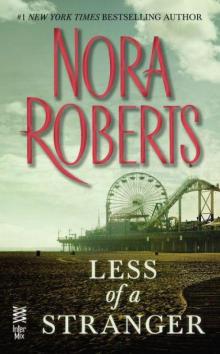 Less than a Stranger
Less than a Stranger Savour the Moment: Now the Big Day Has Finally Arrived, It's Time To...
Savour the Moment: Now the Big Day Has Finally Arrived, It's Time To... Convincing Alex
Convincing Alex Bed of Roses tbq-2
Bed of Roses tbq-2 Savour the Moment tbq-3
Savour the Moment tbq-3 Lessons Learned
Lessons Learned Key Of Valor k-3
Key Of Valor k-3 Red lily gt-3
Red lily gt-3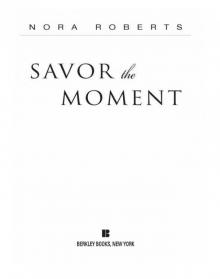 Savor the Moment
Savor the Moment The Return Of Rafe Mackade tmb-1
The Return Of Rafe Mackade tmb-1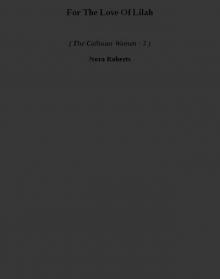 For The Love Of Lilah tcw-3
For The Love Of Lilah tcw-3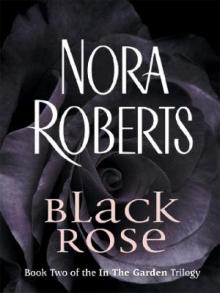 Black Rose gt-2
Black Rose gt-2 Novels: The Law is a Lady
Novels: The Law is a Lady Chesapeake Bay Saga 1-4
Chesapeake Bay Saga 1-4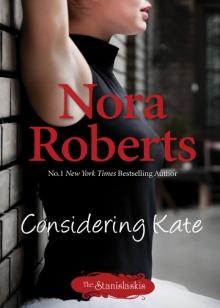 Considering Kate
Considering Kate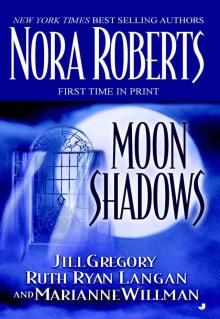 Moon Shadows
Moon Shadows Key of Knowledge k-2
Key of Knowledge k-2 The Sign of Seven Trilogy
The Sign of Seven Trilogy Once Upon a Kiss
Once Upon a Kiss The Novels of Nora Roberts, Volume 5
The Novels of Nora Roberts, Volume 5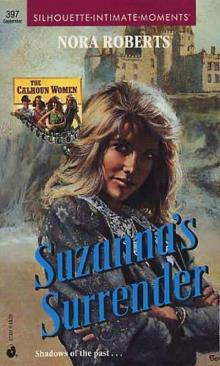 Suzanna's Surrender tcw-4
Suzanna's Surrender tcw-4 The Quinn Brothers
The Quinn Brothers Falling for Rachel
Falling for Rachel Brazen Virtue
Brazen Virtue Time Was
Time Was The Gallaghers of Ardmore Trilogy
The Gallaghers of Ardmore Trilogy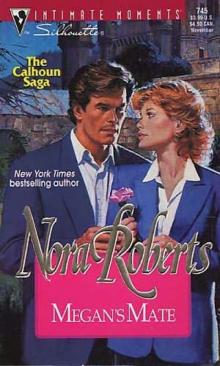 Megan's Mate tcw-5
Megan's Mate tcw-5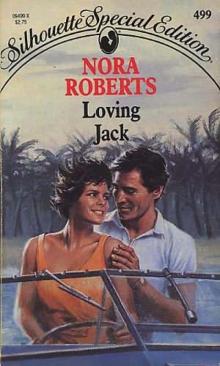 Loving Jack jh-1
Loving Jack jh-1 Rebellion & In From The Cold
Rebellion & In From The Cold Blue Dahlia gt-1
Blue Dahlia gt-1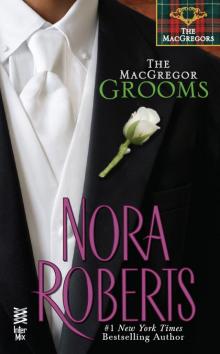 The MacGregor Grooms
The MacGregor Grooms The Next Always tibt-1
The Next Always tibt-1 The Heart Of Devin Mackade tmb-3
The Heart Of Devin Mackade tmb-3 The Novels of Nora Roberts Volume 1
The Novels of Nora Roberts Volume 1 Treasures Lost, Treasures Found
Treasures Lost, Treasures Found Nora Roberts's Circle Trilogy
Nora Roberts's Circle Trilogy The Key Trilogy
The Key Trilogy The Fall Of Shane Mackade tmb-4
The Fall Of Shane Mackade tmb-4 A Will And A Way
A Will And A Way Jewels of the Sun goa-1
Jewels of the Sun goa-1 Luring a Lady
Luring a Lady